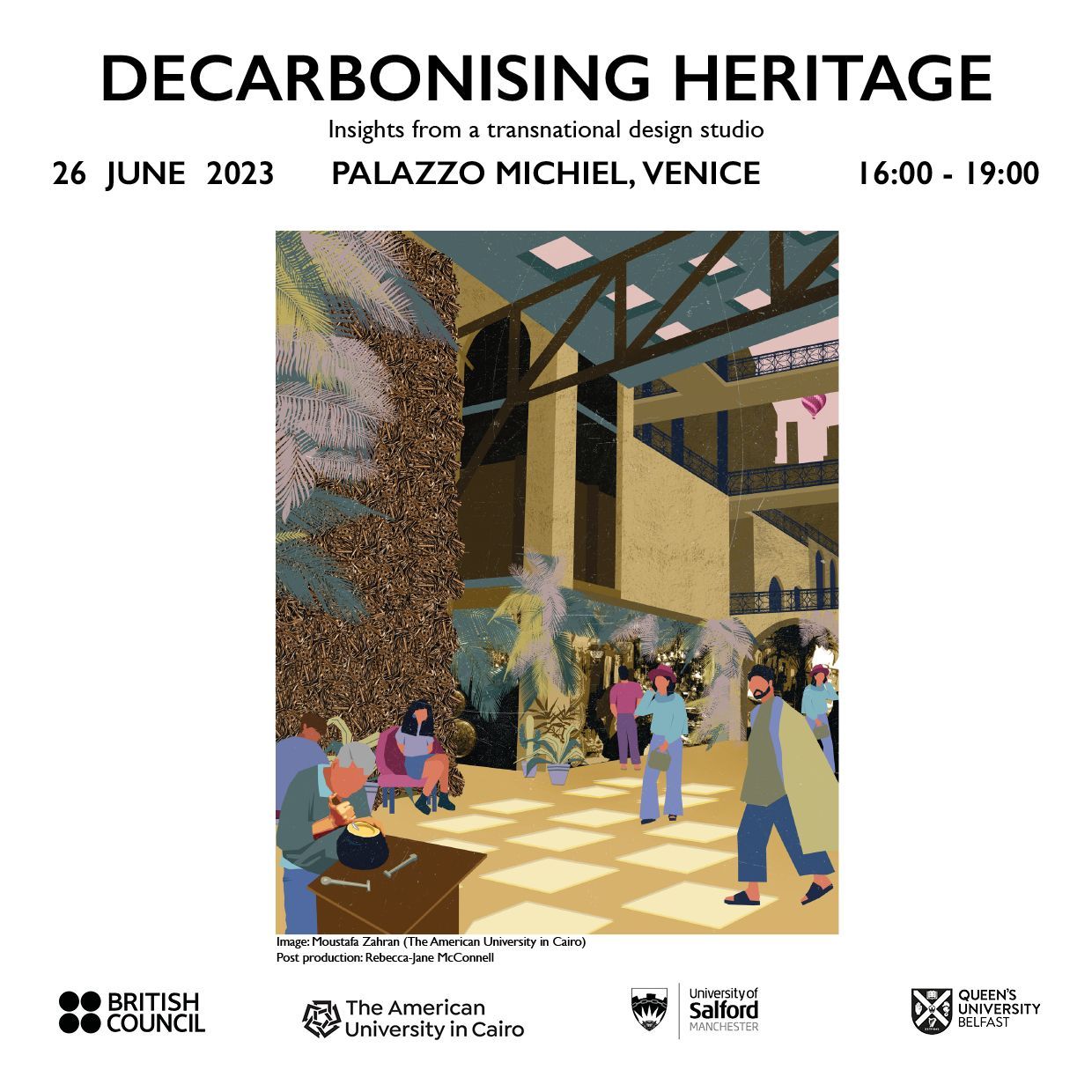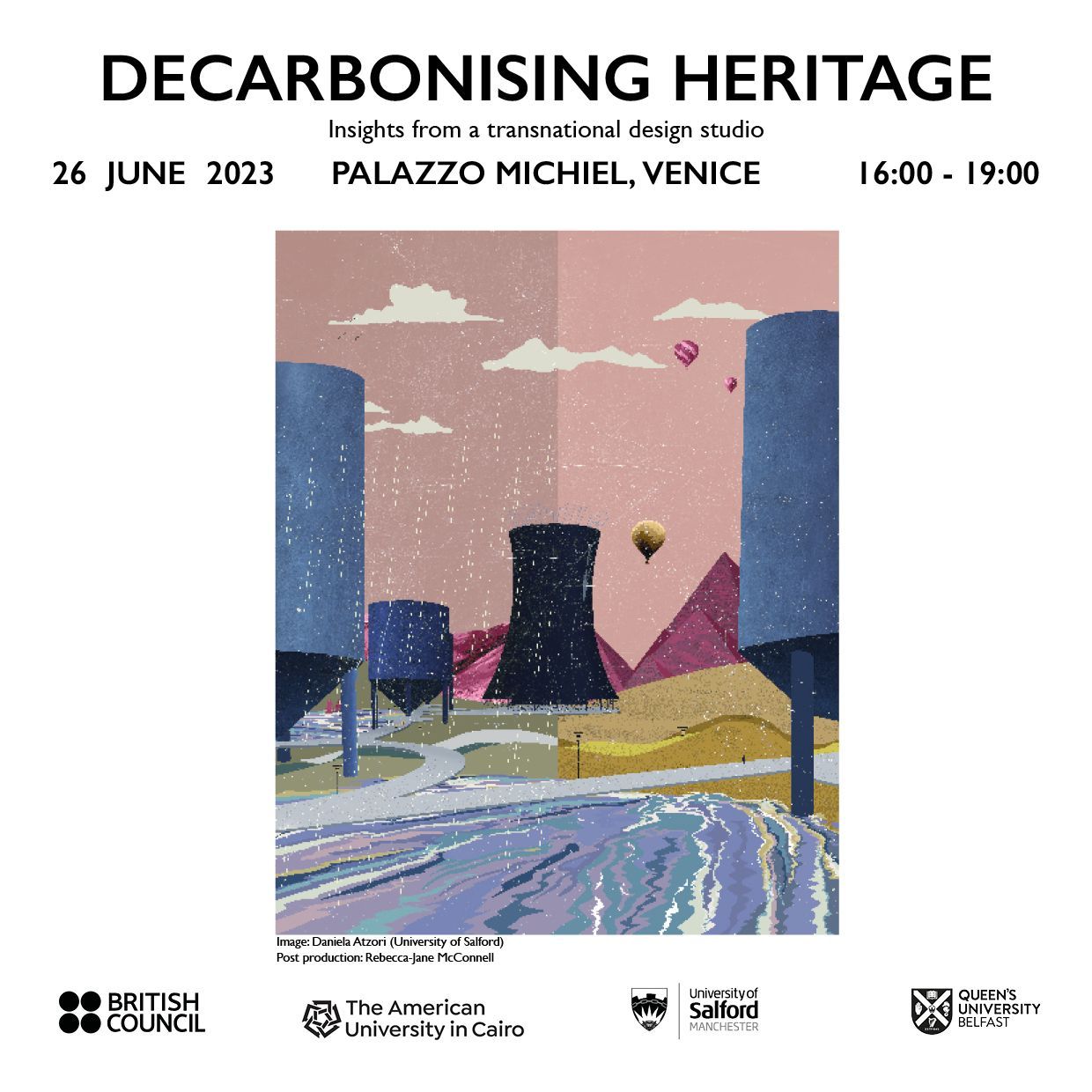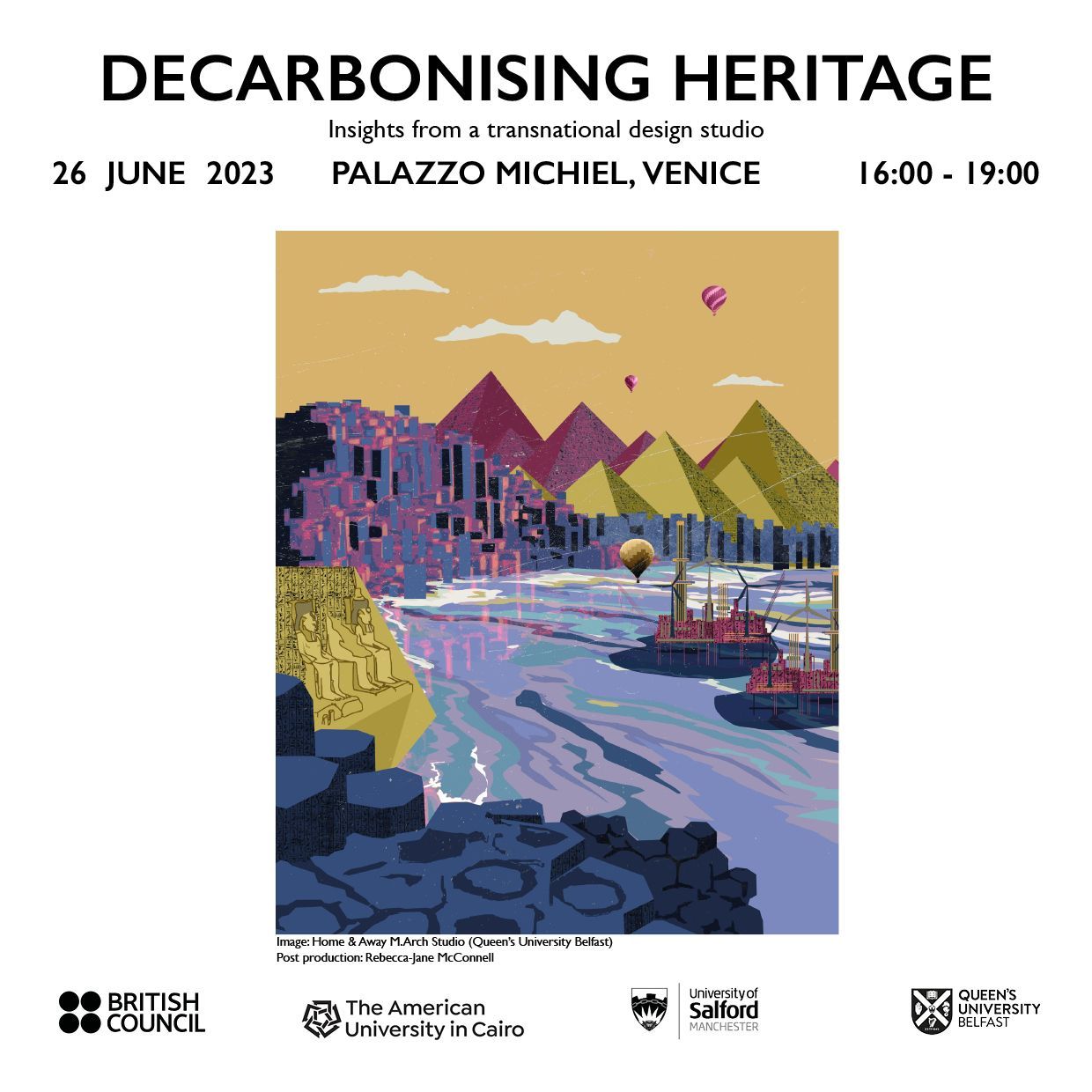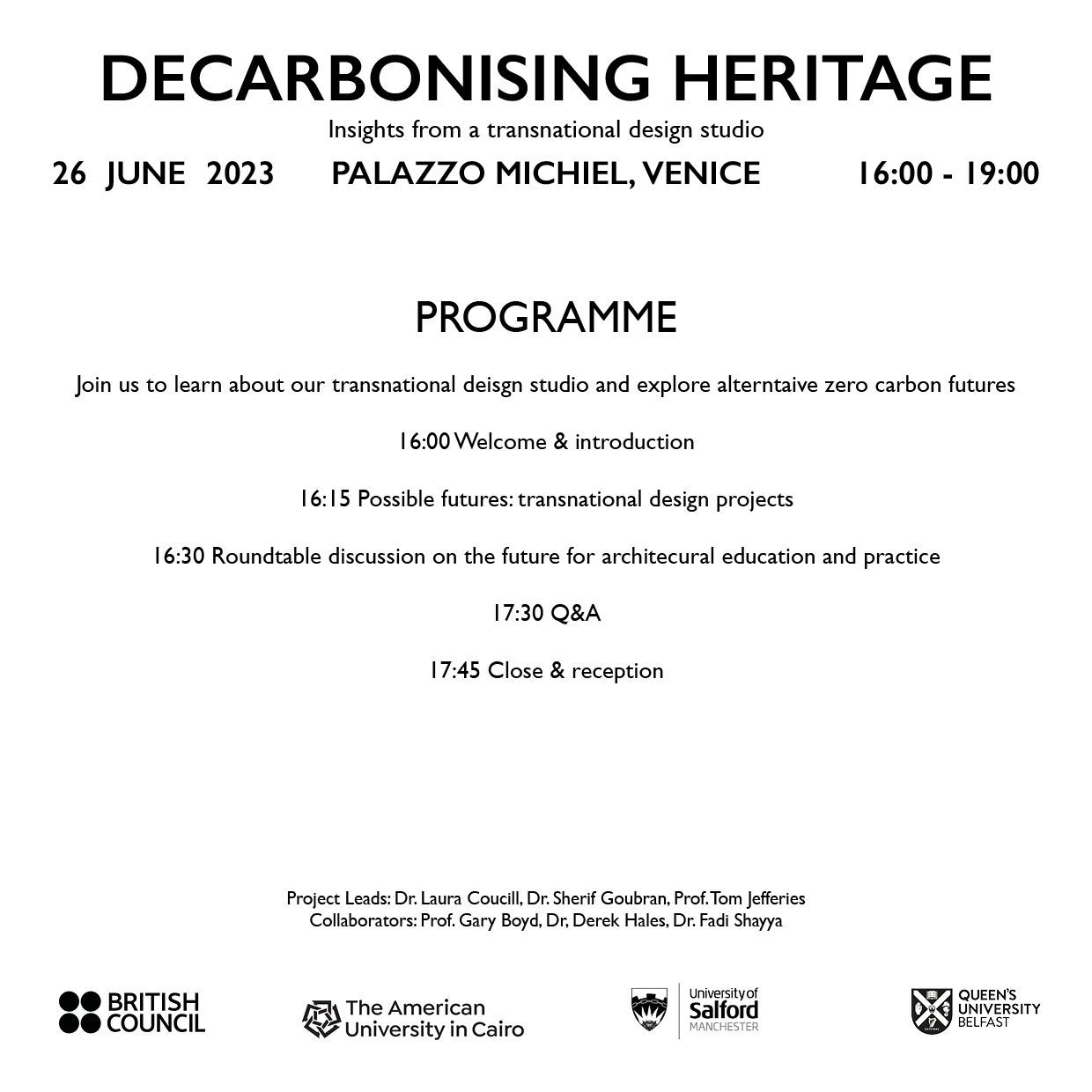The Zero Carbon Future Heritage Studio
Zero-carbon and carbon-negative landscapes and architecture imagined today are the future legacies of the built environment. Funded by the British Council, three institutions examined the heritage-rich contexts of Northern Ireland, Egypt, and England to explore the role of design in the production of future value.
This ‘Distributed Design Studio’ engages architectural design thinking to re-evaluate decarbonization strategies across scales, cultures, and climates. Design questions were explored through experimental and digitally infused co-production, supported by fieldwork focused on natural and constructed forms of heritage. Design research findings, presented at COP27, highlighted the limitations of current strategies, and generated a shared understanding of local responses to global challenges, forming the basis of propositionally based themes that overlap:
The Home + Away Catalogue of Alternative Living
Queen’s University Belfast, Northern Ireland
Prof. Tom Jefferies, Prof. Gary Boyd, Pinar Akdag, Molly Baker, Sharley Pui Zie Chong, Aimee Grant, Dhiraj Reddy Jaddu, Rolandas Laurinavicius, Megan Mackin, Rory McCormack, Suman Miah, Natalia Mokras, Miceal Murphy, Fearghal Rooney, Yuekai Shi, Adela Vagova, Louise Weston, Lois Chan Mei Xing
Popular tourist destinations in Northern Ireland and Egypt are examined in cognate, paired forms, situating propositions on their decarbonisation: This establishes; visible (material, form, space) and invisible (networks, forces, flows) information to determine the carbon usage, water, and energy profiles of these situations.
Reviving-Reusing-Futuring
The American University in Cairo, Egypt
Dr. Sherif Goubran, Dr. Khaled Tarabieh, Amgad AbelAlim, Heba ElKammah, Laila Hany, Lobna Anous, Moustafa Zahran, Nouran El-Khattam, Omar Assem, Saja Shatat, Tamer ElGabaly.
Historic locations continue to afford their dwellers economic, social, and cultural activities that shape living heritage. Design projects examine: How can crafts be the basis of novel creative professions that pave the way to low-carbon futures? And, how can tradition and culture inform new communal, sustainable, and resilient modes of heritage dwelling?
Scarcity, Surplus and Heritage Production
University of Salford, England
Dr. Laura Coucill, Dr. Derek Hales, Dr. Fadi Shayya, Daniela Atzori, Laura Janicka, Callum Forrester, Eris Hysa, Matthew Silvester, Naga Poripireddy, Rasheed Sabitu, Lana Mahmmud, Aiden Armstrong, Dzhan Asanov, Darcey Charnley, Junona Mackevic, Max Gibson, Jack Smedley, Brigit Behanan, Noor Alsaffar, Lydiane Ait Amer Mezaine, Precious Adedeyo, Medahavi Shah, Anupriti Nainwal, Asma Fouz, Saptarshi Sarkar, Darshan Paraliya, Aysha Hanif, Hicran Gokcen.
Energy surplus and scarcity was explored as a driver for landscape and architecture to re-consider society’s relationship between space and carbon. Place-based data-mapping and cross-thematic analysis informs design responses to local policy landscapes and global representation of international decarbonisation commitments to propose net zero carbon future heritage landscapes.
Reviving-Reusing-Futuring:
Sustainable Development through Zero Carbon Heritage
Venice Biennale 2023
In Collaboration with the ECC Time Space Existence
A Going Global Partnership





